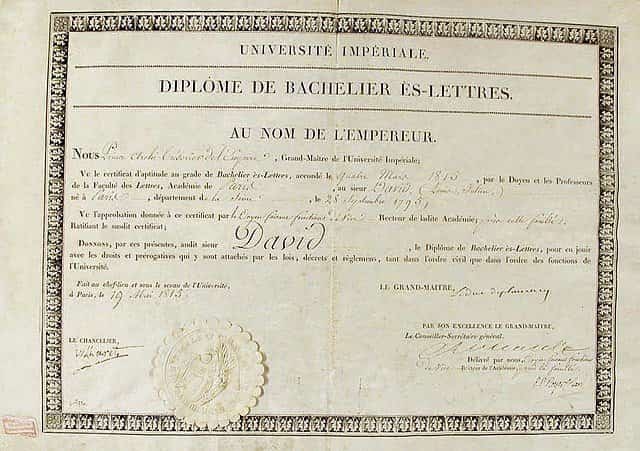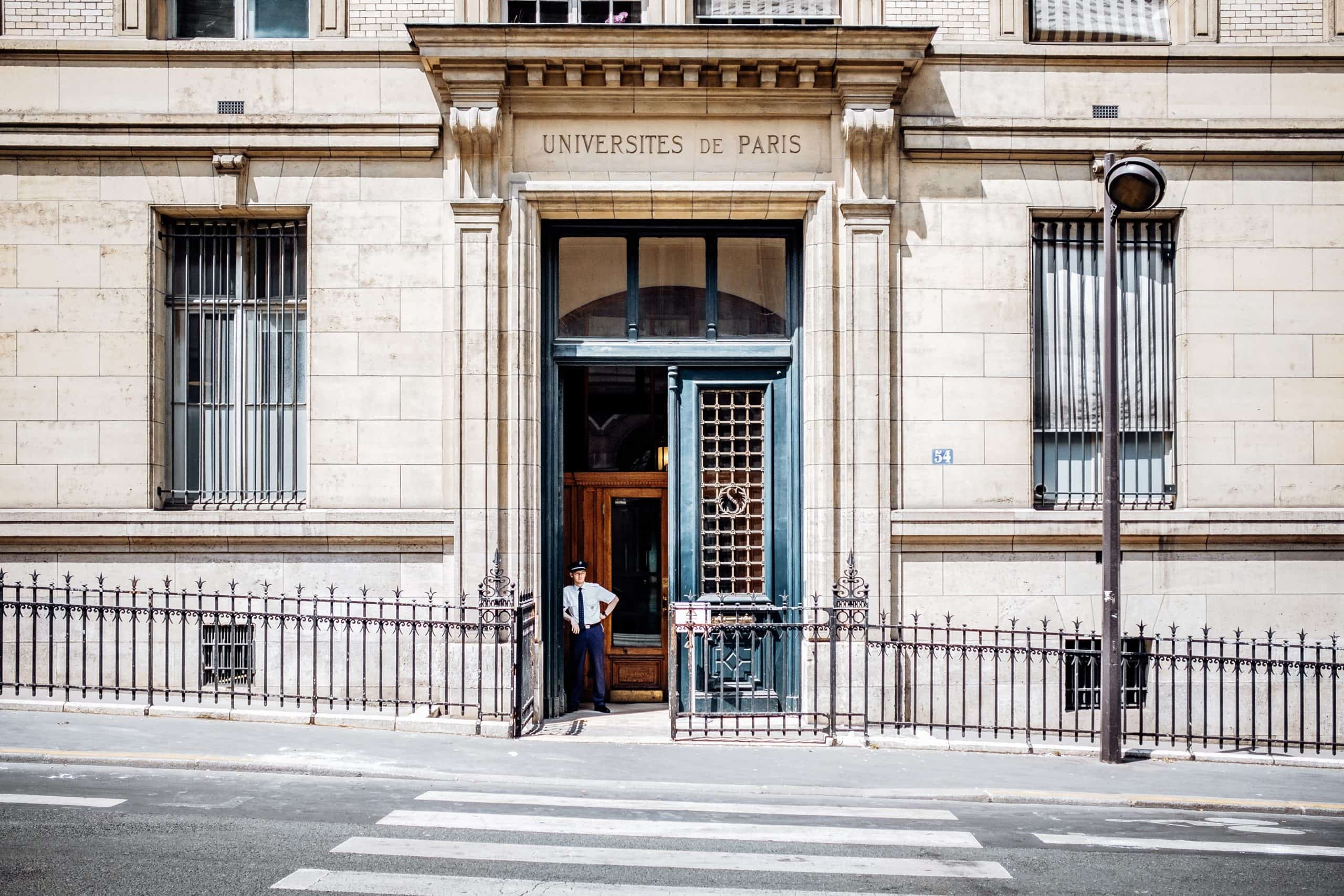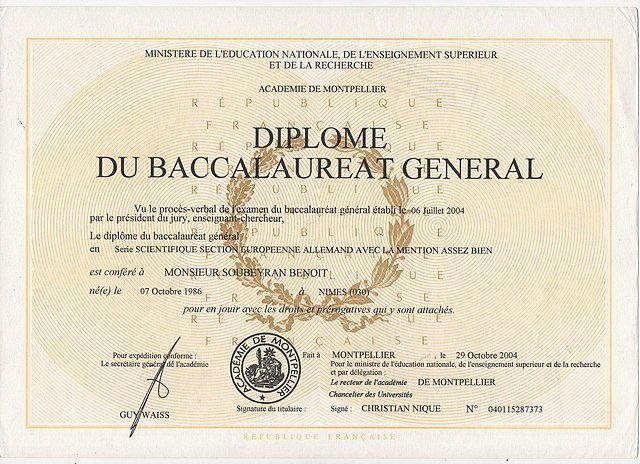If you’ve studied French before, you’ve probably heard of the famous high school exam le baccalauréat, also known as “le bac.” The French often talk about this notoriously challenging rite of passage. The exam took place during the months of May and June this year, and the results will come out tomorrow, on July 4th. How does the test work exactly and where does its unusual format come from? Read on to learn all the essential details you should know about what happens before the test, during it, and afterwards!
By Sophia Millman
The History of Le Bac

1808: Napoleon Bonaparte reorganizes French universities, which were abolished after the French Revolution. Universities now offer degrees in five disciplines: sciences, letters, law, medicine, and theology. Select students first study for a “bacalauréat” degree, then “une licence,” and then “un doctorat.”
1830: The bacalauréat is considered too easy to obtain because there is only an oral exam. The first optional written test is introduced and becomes mandatory in 1840.
1861: The first woman passes the exam. Practice your French and learn more about her here!
1880: Prime Minister Jules Ferry makes primary education compulsory and modifies the “bacalauréat” degree. The exam is no longer given in Latin and now includes a French common core. The exam becomes much less elitist. In 1890, only 7,000 people take the exam; in 1926, the number rises to 37,000.
1960s: The exam is reformed into different tracks: A (philosophy and literature), B (economic and social), C (mathematics and physical science) and D (mathematics and natural science).
1985: “Le baccalauréat” remains a very difficult exam; only 30 percent of high school students pass it. Minister of Education Jean-Pierre Chevènement states his new goal: he will reform the exam so that 80% of high schoolers can pass it by 2000.
Le Bac TODAY
From 1995 until 2020, “le baccalauréat général” was divided into a few different categories. If you did a “bac L,” you focused on literature. If you did a “bac S,” you mostly did science. The format of the exam changed in 2021, in part due to complaints about its elitism. The French Ministry of Education abolished the three general categories: Economics and Social Studies (ES), Literature (L), and Science (S). Today, all students have to study a common core (“socle commun” or “tronc commun”), and then choose three specialty subjects. They will also be graded on their coursework and not just on their exam results. In some ways, the new system resembles the American high school system.
- If you’re interested in learning more about why many find “le baccalauréat” problematic, read this English article.
- Practice your French: Listen to a debate called “Le nouveau bac est-il bradé ?” or watch the video below to watch French high schooler’s reactions to this year’s philosophy exam.
Who Takes Le Bac?
In French lycées (high schools), there are three class years: seconde, première and terminale. At the end of terminale (senior year), students around age 18 sit for the end of le bac, but the exam starts during their second year of high school. Although it’s not required, almost all students take a version of the exam. There are three main types:
- le baccalauréat général: for students who want to go to university for 3+ years
- le baccalauréat technologique: for trade school students who want to specialize early in subjects like laboratory science, hotel management, or marketing management
- le baccalauréat professionnel: for students at vocational high schools who want to become cooks, building technicians, plumbers… There are about 100 areas of expertise!
The Format of Le Bac
Today, a large part of a student’s grade on le bac is based on a continuous assessment (“contrôle continu”). Most exams involve essays and math/science problems. Unlike SAT, le bac is not a standardized test. Multiple choice questions, like the ones on the SAT, are not popular in France. Students taking le baccalauréat général have to work on a research project which includes an oral presentation in front of a jury of teachers. They also have to do a sport, which counts for part of their grade. Thankfully, that part of their grade is not weighted a lot (it has a low “coefficient”).
- If you want more detailed information about the exam, and you can read in French, check out this site. Or watch the French ministry’s short English video:
How the exam is graded
One thing that is especially hard for Americans to understand about French culture is the grading system. In France, it’s extremely difficult to get a perfect score on a test. Exams are graded out of 20, and if you get a 10 out of 20, you pass the test. A 16 or above is considered an excellent grade. If you get good grades on le bac, you get “une mention,” which you can put on your CV.
Here’s how the grades break down:
Mention “Assez bien”: Pretty good – your grade was between 12 and 14 (out of 20)
Mention “Bien”: Good – your grade was between 14 and 16 (out of 20)
Mention “Très bien”: Really good – your grade was 16 or above (out of 20)
What Happens After “Le Bac”
After students have obtained their “bac,” some pursue two-year degrees, which are called le D.U.T. (Diplôme universitaire de technologie) and le B.T.S. (Brevet de technicien supérieur). These help students prepare for specific professions. You can learn more about them (in English) here!
Other students go on to study at public universities like La Sorbonne (pictured below). They can earn “une licence” (“bac +3”) in three years, and some then do a master’s degree (“bac +5”) for another two years. A “licence” is similar to an American bachelor’s degree, but it’s not always as prestigious. Many students in France have to earn master’s degrees to enter the sector they want to work in. Learn more about these degrees here.
A small percentage of French lycéens (high schoolers) go to “les grandes écoles,” specialized elite professional schools. To get into these schools, students have to take a competitive exam called a “concours” and some go to prépas first.

